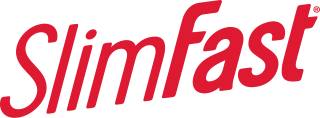Dieting is the practice of eating food in a regulated way to decrease, maintain, or increase body weight, or to prevent and treat diseases such as diabetes and obesity. As weight loss depends on calorie intake, different kinds of calorie-reduced diets, such as those emphasising particular macronutrients, have been shown to be no more effective than one another. As weight regain is common, diet success is best predicted by long-term adherence. Regardless, the outcome of a diet can vary widely depending on the individual.
A macrobiotic diet is a fad diet based on ideas about types of food drawn from Zen Buddhism. The diet tries to balance the supposed yin and yang elements of food and cookware. Major principles of macrobiotic diets are to reduce animal products, eat locally grown foods that are in season, and consume meals in moderation.

A fad diet is a diet that is popular, generally only for a short time, similar to fads in fashion, without being a standard scientific dietary recommendation, and often making unreasonable claims for fast weight loss or health improvements; as such it is often considered a type of pseudoscientific diet. Fad diets are usually not supported by clinical research and their health recommendations are not peer-reviewed, thus they often make unsubstantiated statements about health and disease.
A dietitian, medical dietitian, or dietician is an expert in identifying and treating disease-related malnutrition and in conducting medical nutrition therapy, for example designing an enteral tube feeding regimen or mitigating the effects of cancer cachexia. Many dietitians work in hospitals and usually see specific patients where a nutritional assessment and intervention has been requested by a doctor or nurse, for example if a patient has lost their ability to swallow or requires artificial nutrition due to intestinal failure. Dietitians are regulated healthcare professionals licensed to assess, diagnose, and treat such problems. In the United Kingdom, dietitian is a 'protected title', meaning identifying yourself as a dietitian without appropriate education and registration is prohibited by law.

In nutrition, diet is the sum of food consumed by a person or other organism. The word diet often implies the use of specific intake of nutrition for health or weight-management reasons. Although humans are omnivores, each culture and each person holds some food preferences or some food taboos. This may be due to personal tastes or ethical reasons. Individual dietary choices may be more or less healthy.

SlimFast is an American company headquartered in Palm Beach Gardens, Florida, that markets an eponymous brand of shakes, bars, snacks, packaged meals, and other dietary supplement foods sold in the U.S., Canada, France, Germany, Iceland, Ireland, Latin America, and the U.K. SlimFast promotes diets and weight loss plans featuring its food products.

A healthy diet is a diet that maintains or improves overall health. A healthy diet provides the body with essential nutrition: fluid, macronutrients such as protein, micronutrients such as vitamins, and adequate fibre and food energy.
The Child Nutrition Act of 1966 (CNA) is a United States federal law (act) signed on October 11, 1966 by President Lyndon B. Johnson. The Act was created as a result of the "years of cumulative successful experience under the National School Lunch Program (NSLP) to help meet the nutritional needs of children." The National School Lunch Program feeds 30.5 million children per day. NSLP was operated in over 101,000 public and nonprofit private schools in 2007. The Special Milk Program, functioning since 1954, was extended to June 30, 1970 and incorporated into the act. The act also provided Federal funding assistance towards non-food purchases for school equipment.

A very-low-calorie diet (VLCD), also known as semistarvation diet and crash diet, is a type of diet with very or extremely low daily food energy consumption. VLCDs are defined as a diet of 800 kilocalories (3,300 kJ) per day or less. Modern medically supervised VLCDs use total meal replacements, with regulated formulations in Europe and Canada which contain the recommended daily requirements for vitamins, minerals, trace elements, fatty acids, protein and electrolyte balance. Carbohydrates may be entirely absent, or substituted for a portion of the protein; this choice has important metabolic effects. Medically supervised VLCDs have specific therapeutic applications for rapid weight loss, such as in morbid obesity or before a bariatric surgery, using formulated, nutritionally complete liquid meals containing 800 kilocalories or less per day for a maximum of 12 weeks.
A diabetic diet is a diet that is used by people with diabetes mellitus or high blood sugar to minimize symptoms and dangerous complications of long-term elevations in blood sugar.
Nutritional rating systems are used to communicate the nutritional value of food in a more-simplified manner, with a ranking, than nutrition facts labels. A system may be targeted at a specific audience. Rating systems have been developed by governments, non-profit organizations, private institutions, and companies. Common methods include point systems to rank foods based on general nutritional value or ratings for specific food attributes, such as cholesterol content. Graphics and symbols may be used to communicate the nutritional values to the target audience.

The Western pattern diet is a modern dietary pattern that is generally characterized by high intakes of pre-packaged foods, refined grains, red meat, processed meat, high-sugar drinks, candy and sweets, fried foods, industrially produced animal products, butter and other high-fat dairy products, eggs, potatoes, corn, and low intakes of fruits, vegetables, whole grains, pasture-raised animal products, fish, nuts, and seeds.

Diet-to-Go (DTG) is a privately held company that was founded in 1991 by Hilton Davis. The company offers a national diet delivery food product and local food pickup meals. The company was formed originally as a local diet delivery company in Virginia.
The South Beach Diet is a popular fad diet developed by Arthur Agatston and promoted in his bestselling 2003 book. It emphasizes eating food with a low glycemic index, and categorizes carbohydrates and fats as "good" or "bad". Like other fad diets, it may have elements which are generally recognized as sensible, but it promises benefits not backed by supporting evidence or sound science.
Nutrition education is a combination of learning experiences designed to teach individuals or groups about the principles of a balanced diet, the importance of various nutrients, how to make healthy food choices, and how both dietary and exercise habits can affect overall well-being. It includes a combination of educational strategies, accompanied by environmental supports, designed to facilitate voluntary adoption of food choices and other nutrition-related behaviors conducive to well-being. Nutrition education is delivered through multiple venues and involves activities at the individual, community, and policy levels. Nutrition Education also critically looks at issues such as food security, food literacy, and food sustainability.

MyPlate is the current nutrition guide published by the United States Department of Agriculture's Center for Nutrition Policy and Promotion, and serves as a recommendation based on the Dietary Guidelines for Americans. It replaced the USDA's MyPyramid guide on June 2, 2011, ending 19 years of USDA food pyramid diagrams. MyPlate is displayed on food packaging and used in nutrition education in the United States. The graphic depicts a place setting with a plate and glass divided into five food groups that are recommended parts of a healthy diet. This dietary recommendation combines an organized amount of fruits, vegetables, grains, protein, and dairy. It is designed as a guideline for Americans to base their plate around in order to make educated food choices. ChooseMyPlate.gov shows individuals the variety of these five subgroups based on their activity levels and personal characteristics.
Miriam E. Nelson is an American health and nutrition scholar, policy advisor, and author. She is the former president and CEO of Newman's Own Foundation, an independent, private foundation formed in 2005 by actor and race car driver Paul Newman to sustain the legacy of his philanthropic work. She had a controversial tenure as president of Hampshire College.
Fred Pescatore is a Manhattan-based author and internist who specializes in nutrition. He is best known as the author of the bestselling children's health book Feed Your Kids Well (1998) and The Hamptons Diet (2004).

A meal kit is a subscription service–foodservice business model where a company sends customers pre-portioned and sometimes partially prepared food ingredients and recipes to prepare home-cooked meals. Services that send pre-cooked meals are called meal delivery services. This subscription model has been cited as an example of the personalization of the food and beverage industry.
Weight Watchers or WW is a commercial program for weight loss based on a point system, meals replacement and counseling.








